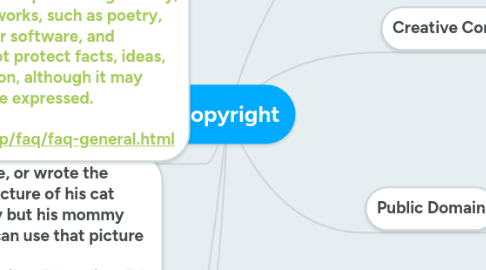Copyright
저자: Molly Fritel


1. Kid Friendly Definition: Only the person who created the music, drew the picture, or wrote the poem owns that piece of artistic work. This means that when Andrew draws a picture of his cat Missy he holds a copyright on his drawing! Even if Andrew never shows anybody but his mommy that picture of Missy, he still has something called a copyright, and no one else can use that picture of Missy and say they made it (Shaw, 2003) Shaw, Rosemary. "TechLearning: Kindergarten Copyright." Classroom Tech Learning, Education, PC, Mac, IPad, Blooms Taxonomy & Techlearning.com. Tech & Learning, 1 Sept. 2003. Web. 22 Nov. 2011. <http://www.techlearning.com/article/Kindergarten-Copyright/41332>.
2. Definition: the exclusive legal right, given to an originator or an assignee to print, publish, perform, film, or record literary, artistic, or musical material, and to authorize others to do the same:
3. Copyright, a form of intellectual property law, protects original works of authorship including literary, dramatic, musical, and artistic works, such as poetry, novels, movies, songs, computer software, and architecture. Copyright does not protect facts, ideas, systems, or methods of operation, although it may protect the way these things are expressed. (copyright.gov) http://www.copyright.gov/help/faq/faq-general.html
4. Fair Use Act
4.1. A fair use is any copying of copyrighted material done for a limited and “transformative” purpose, such as to comment upon, criticize, or parody a copyrighted work. Such uses can be done without permission from the copyright owner. In other words, fair use is a defense against a claim of copyright infringement. (Stanford Copyright Reminder) http://fairuse.stanford.edu/overview/fair-use/what-is-fair-use/
5. Creative Commons
5.1. What is it?
5.1.1. Creative Commons is a global nonprofit organization that enables sharing and reuse of creativity and knowledge through the provision of free legal tools. https://creativecommons.org/faq/#what-is-creative-commons-and-what-do-you-do
6. Public Domain
6.1. What is not protected?
6.1.1. Works that have an expired copyright.
6.1.2. The author did not fill all requirements of copyright.
6.1.3. Works done by the U.S. government.
